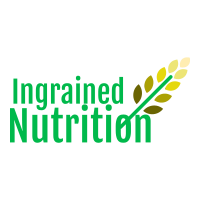Menopause is the name given to the period in a women’s life where menstruation stops. This usually occurs around the age of 45-55 and is associated with the end of fertility and hormone changes which can cause a range of side effects with some women suffering more than others.
Changes to body weight and central adiposity is common but why and what can we do to prevent this? Are there any foods we can eat to reduce symptoms? Are your nutritional requirements different now?
We are going to answer this and more.
Menopause and Weight Change
Many women will report a change in their body shape during menopause, with weight shifting to the abdomen. Women who once found it easy to shed a kilo or two often find it a bit more difficult once Menopause has begun due to hormonal changes and a reduction in Basal Metabolic Rate (BMR) . BMR is the minimum number of kJ your body needs to function at a state of rest. On average a pre-menopausal BMR is 6215kJ/day while studies have found that the average BMR is 5722kJ/day which is a 593kJ difference. This amount is equivalent to around one snack such as a muesli bar or a yoghurt less per day and could be the difference in maintaining and gaining weight.
Some studies have also shown that women who reach menopause are less likely to participate in daily physical activity with women pre-menopause more likely to participate in activity. Physical activity is an important factor at all stages of life but can be beneficial in reducing or prevention of abdominal fat during menopause. Exercise also helps to strengthen bones, increase muscle mass, maintain heart health, and assist with mood fluctuations.
Calcium & Bone Health
As your oestrogen levels decrease during menopause, the risk of osteoporosis is higher due to lower bone density. The guideline for dairy intake increases significantly for women over the age of 50 for this reason from 2 ½ to 4 serves per day.
1 serve of dairy =
- 1 cup milk
- 40g cheese (2 slices)
- 200g yoghurt
If you are using plant-based milks, ensure the brand you are buying has added calcium.
Adequate vitamin D intake is also essential for bone health, most of which we get from the sunshine but we also can get some from mushrooms and eggs. If you are deficient speak to your doctor or dietitian about a supplement for calcium or Vitamin D. Keeping an eye on your daily coffees is also important for bone healthy, keeping your intake to 2 per day.
Phytoestrogens for Symptom Improvement
Many women, but not all experience hot flushes during menopause. Phytoestrogens are plant-based oestrogen It is believed that phytoestrogens, which occur naturally in plant foods, could relieve these hot flushes, in particular two types: Isoflavones (found in soy foods) and lignans (found in linseeds, berries and wholegrains).
- The effect of phytoestrogens on menopausal hot flushes varies between individuals, as only a third to a half of individuals have the gut bacteria that convert the phytoestrogens to a more potent form
- There is growing evidence to suggest that phytoestrogens may help with bone and cardiovascular health, but this relationship is still unclear
- It is not recommended that woman at high risk of breast cancer, or who have had breast cancer, take soy supplements.
There is currently no scientific proof that these phytoestrogens help with hot flushes, but there is a lot of anecdotal evidence so it may be worth a try to see if they personally help you.
40-60mg of isoflavones are required /day for any effect
- Soy milk 10mg/100ml
- Soy yogurt 10mg/100ml
- TVP 33mg/100g
- Soya cheese 7mg/100g
- Tofu 27mg/100g
- Red clover supplement 40mg
Heart-Protective Diet
Nutritional focus also shifts to a heart-protective diet due to the increased risk brought, on by menopause and central obesity. Choosing healthy fats and limiting saturated fats is a good starting place. A Mediterranean eating style has shown to be cardio-protective and positive for a healthy weight. This style of eating involves less processed foods, refined carbohydrates and red meat and a higher intake of fruit, vegetables, lentils/legumes/beans, omega-3 fatty acids: fish, nuts, seeds olive oil, herbs and spices such as turmeric and small amounts of red wine.
Saturated fats occur in foods such as animal fats, fat on meat, butter, coconut oil, cream, processed meats and discretionary foods such as ice-cream, deep-fried foods, cakes, and meat pies, chocolate.
Overall eating healthy foods with a focus on dairy, fruit, vegetables, some soy products and healthy fats is the way to go. Avoid fad diets and over-restriction as this is likely to lead to negative effects on mood and inadequate in meeting your nutritional needs. Focus on activity and a variety of foods, and speak to your doctor or dietitian for more individualised advice.
By Caitlin Mannion, Dietitian
Reference




